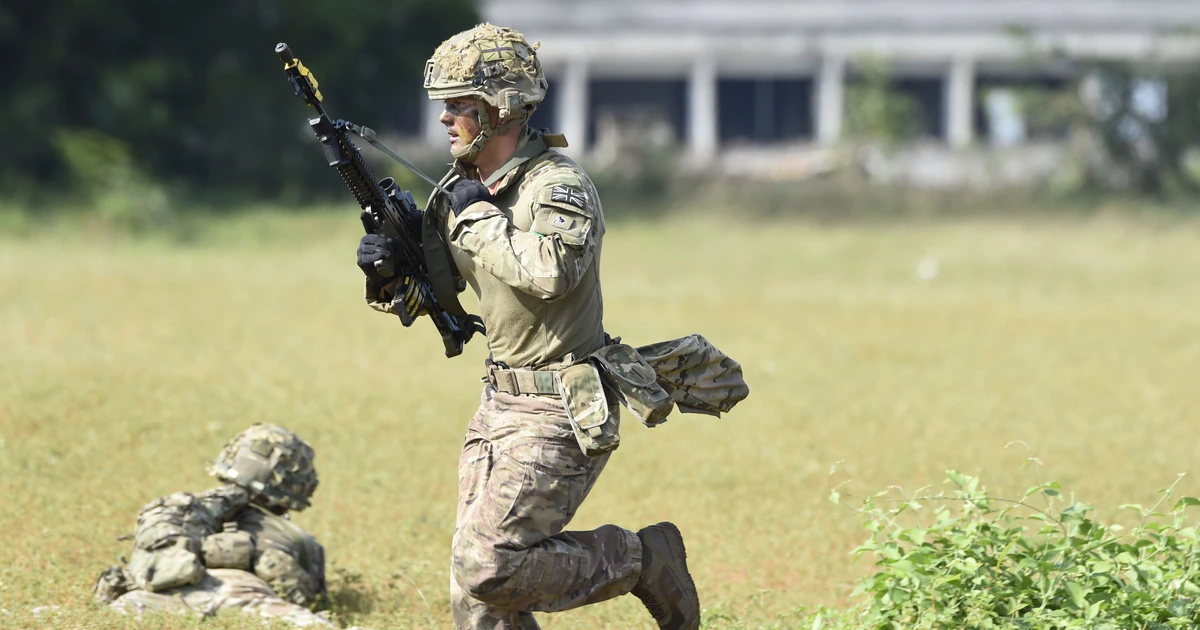
WASHINGTON — The decision by the United Kingdom to create a new ranger regiment was driven by a need to place long-term special operations capabilities in partner countries, with a key focus on the African continent, according to the chief of the British Army.
Gen. Mark Carleton-Smith, the Army’s chief of the general staff, told Defense News during a recent visit to Washington that the creation of the new unit is based around the fact that “the future is growing unpredictability, and [with] uncertainty and volatility.”
The new regiment, made up of four battalions, is expected to come online before the end of the year. U.K. officials said the group is actively modeled on the American Green Berets. Britain’s recent integrated review of defense, security, foreign policy and international development called for £120 million (U.S. $170 million) over the next four years for the unit.
Asked why Britain would create the unit now when the country and the U.S. are jointly focused on great power competition and drawdowns in the Middle East, Carleton-Smith pointed to the experience in Iraq and Afghanistan, which he described as being “engaged in a campaign of proxy management,” one where the allied special forces focused on building local partner capacity.
“That’s a long-term game and a long-term investment, but it’s also a specialist sport, particularly with respects to the cultural dimension. It’s also become almost a house style,” Carleton-Smith said. “And we think in the future that house style is going to have greater applicability in regions of the world such as Africa, which continues to incubate violent extremist threats. And we therefore needed to build greater capacity.”
The challenge will be building partners’ capabilities while transforming Britain’s existing “tier one” special operations forces to prepare them for great power challenges, the general said. “In order to find that time and the resources for that [transformation], they will need to relinquish some of the responsibilities that have been their daily diet in the post-9/11 world and hand off responsibility to the conventional force,” he explained.
Hence, the rangers, who will “give us the capacity for raising, training, mentoring, advising and accompanying local surrogates in high-threat and hostile environments, a role that was previously almost the exclusive preserve of our tier one special forces, but we now need within the conventional force as well.”
“They will act as the long-term continuity to our training and liaison relationships on the outposts of the map fold, capitalizing actually on our global network of training bases,” he added, highlighting locations such as Kenya, Brunei and Belize as areas with existing regional partnerships in which the rangers could step in and lead.
When the integrated review was released in March, James Heappey, the U.K.’s armed forces minister, highlighted sub-Saharan Africa as a “growing market” for the ranger capability. Carleton-Smith also identified Africa as a key concern that London is watching as it spins up this new regiment.
“I think we can see indices that concern a sort of growing instability across sub-Saharan Africa. And if the demographics, you know, are to be believed, the population may double in the course of the next 20-25 years. And we Europeans have already seen potentially only the very tip of the human volcano that Africa, if left unattended, could represent,” Carleton-Smith said.
“And so we think early, prophylactic action now, in support of local partners across that region, will [enhance] the resilience and the military capacity that they’re going to need to handle this growing instability,” he added. “And of course we’re dealing with vast expanses of geography, almost perfectly tailor-made for the incubation of future extremist threats who found it hard to survive, of course, in Waziristan, Afghanistan, Syria and Iraq, and are looking for other areas in which, of course, to ply their trade.”



Be the first to comment